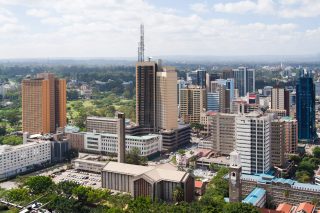Kenya has made significant political, structural and economic reforms that have primarily driven sustained economic growth, social development and political gains over the past decade. However, a significant challenge to its development goals is poverty and access to credit facilities for human and social development.
Access to loans and lines of credit is a sign of a strong, healthy economy and an indicator of the growth of any nation. It is towards solving the problem of access to credit in Kenya, the World Bank said it will fund the creation of an electronic registry that will allow the use of household goods, live animals and office equipment as collateral for commercial loans.
This move to ensure relaxed access to loans has been in progress since 2017 when Kenya passed the movable property security right, however, the move was delayed due to the late formation of a centralised electronic registry for mobile assets that financial institutions can use to verify the security offered for loans.
Through its private investment arm, International Finance Corporation, the World Bank has disclosed that it is working with bankers and the Kenyan government on the development of a collateral registry. “The objective of the project is to increase the reach of credit to individual consumers as well as micro, small and medium enterprises, especially women entrepreneurs who are adversely affected by the traditional lending practice that favours physical assets over movable assets as collateral for loans,” reads a statement by the International Finance Corporation.
Owing to the lack of a central registry where claims can be logged, lenders have ignored movable assets such as household goods and office equipment as loan collaterals. Lack of a central registry meant ownership of collateral could easily be transferred without the bank’s knowledge, leaving it exposed in case of a default and consequently making the registry answer to the difficulties facing potential borrowers who lack assets to back up their credit applications.
To raise awareness among customers, banks and other stakeholders for early adoption of the electronic registry, the World Bank has a $240,000 budget for campaigns and announcements, as goods listed in the electronic registry will have a unique identification number to ensure tracking of properties that have been used to secure bank loans or collateral.








